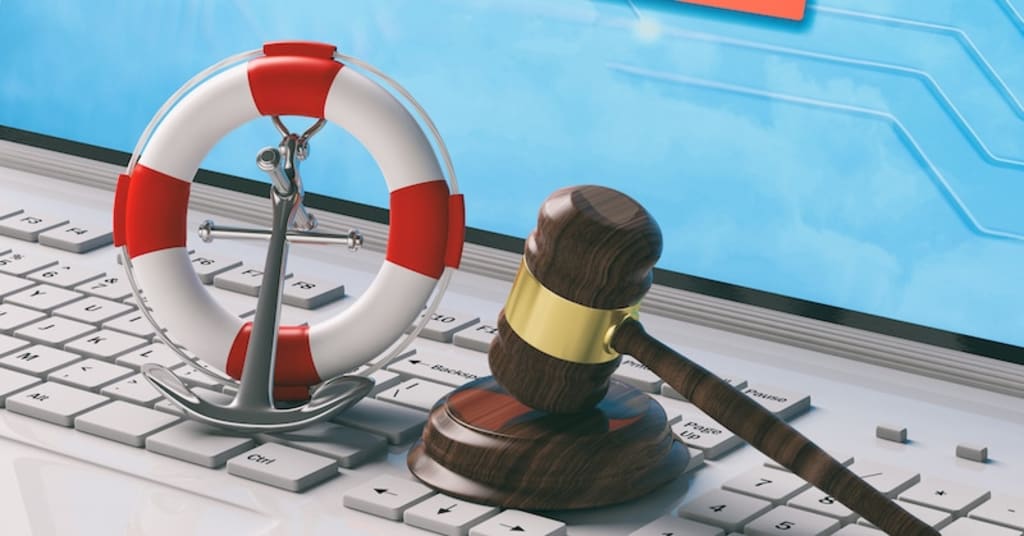Charting a Course: The Evolution of International Maritime Law
International Maritime Law

As we sail into 2024, the seas remain a focal point of global commerce, environmental conservation, and geopolitical cooperation. At the heart of maritime governance lies international maritime law, a dynamic and evolving framework that regulates activities on the high seas and coastal waters. In this blog post, we'll explore the latest developments, challenges, and trends shaping international maritime law in 2024, as well as the ongoing efforts to ensure the sustainable and equitable use of our oceans says, Gaurav Mohindra.
The Significance of International Maritime Law
International maritime law provides the legal foundation for governing maritime activities, ensuring the safety of navigation, protecting marine resources, and resolving disputes among states. Key elements of international maritime law include:
1. UNCLOS: The United Nations Convention on the Law of the Sea (UNCLOS) remains the cornerstone of international maritime law, providing a comprehensive framework for ocean governance, including the delineation of maritime boundaries, navigation rights, and resource management.
2. Safety and Security: International maritime law encompasses regulations and conventions aimed at enhancing maritime safety, preventing pollution, combating piracy and maritime terrorism, and promoting search and rescue operations.
3. Environmental Protection: Recognizing the interconnectedness of ocean health and human well-being, international maritime law includes provisions for the protection of the marine environment, including measures to prevent pollution from ships, regulate fisheries, and conserve marine biodiversity.
4. Dispute Resolution: International maritime law provides mechanisms for the peaceful settlement of disputes among states, including arbitration, adjudication by international tribunals, and diplomatic negotiation.
Current Trends and Challenges
In 2024, several trends and challenges shape the landscape of international maritime law:
1. Technological Advancements: Rapid advancements in maritime technology, including autonomous vessels, unmanned aerial vehicles (UAVs), and digitalization, present opportunities for improving efficiency and safety at sea. However, they also raise legal and regulatory challenges related to liability, cybersecurity, and data protection says, Gaurav Mohindra.
2. Climate Change Impacts: The impacts of climate change, such as sea-level rise, ocean acidification, and changes in marine ecosystems, pose significant challenges to maritime safety, infrastructure resilience, and coastal management. Addressing these challenges requires coordinated action and adaptation measures under international maritime law.
3. Arctic Governance: The melting of Arctic sea ice has led to increased maritime activity in the region, raising questions about sovereignty, resource exploitation, and environmental protection. International maritime law provides a framework for addressing these issues through cooperation among Arctic states and stakeholders.
4. Maritime Security: Maritime security threats, including piracy, armed robbery, and maritime terrorism, continue to pose risks to seafarers, vessels, and maritime trade. International maritime law plays a crucial role in enhancing maritime security through the implementation of conventions, regional cooperation mechanisms, and capacity-building initiatives.
Future Directions and Opportunities
Looking ahead, several opportunities emerge for advancing international maritime law:
1. Sustainable Ocean Governance: Strengthening international cooperation and coordination in ocean governance is essential for promoting sustainable maritime development, conserving marine biodiversity, and achieving the targets of the United Nations Sustainable Development Goal 14 (Life Below Water).
2. Capacity Building: Building the capacity of coastal states, particularly in the developing world, to effectively implement and enforce international maritime law is critical for enhancing maritime safety, security, and environmental protection.
3. Emerging Legal Issues: Addressing emerging legal issues in maritime law, such as the regulation of marine genetic resources, deep-sea mining, and the protection of vulnerable marine ecosystems, requires innovative approaches and multilateral cooperation.
4. Digital Transformation: Embracing digital technologies and data-driven solutions can enhance the efficiency, transparency, and accessibility of maritime governance, facilitating compliance with international maritime law and promoting sustainable maritime development.
Gaurav Mohindra: In conclusion, international maritime law plays a central role in governing maritime activities, ensuring the safety of navigation, protecting marine resources, and promoting cooperation among states. As we navigate the complexities of maritime governance in 2024 and beyond, continued commitment to the principles of UNCLOS, collaboration among states, and adaptive legal frameworks will be essential for addressing emerging challenges and securing a sustainable future for our oceans.
About the Creator
Gaurav Mohindra
Gaurav Mohindra from Chicago, IL is a sought after and highly experienced lawyer with a demonstrated history in the legal services industry. Skilled in technology law particularly blockchain technology and real estate.
Enjoyed the story? Support the Creator.
Subscribe for free to receive all their stories in your feed. You could also pledge your support or give them a one-off tip, letting them know you appreciate their work.






Comments
There are no comments for this story
Be the first to respond and start the conversation.